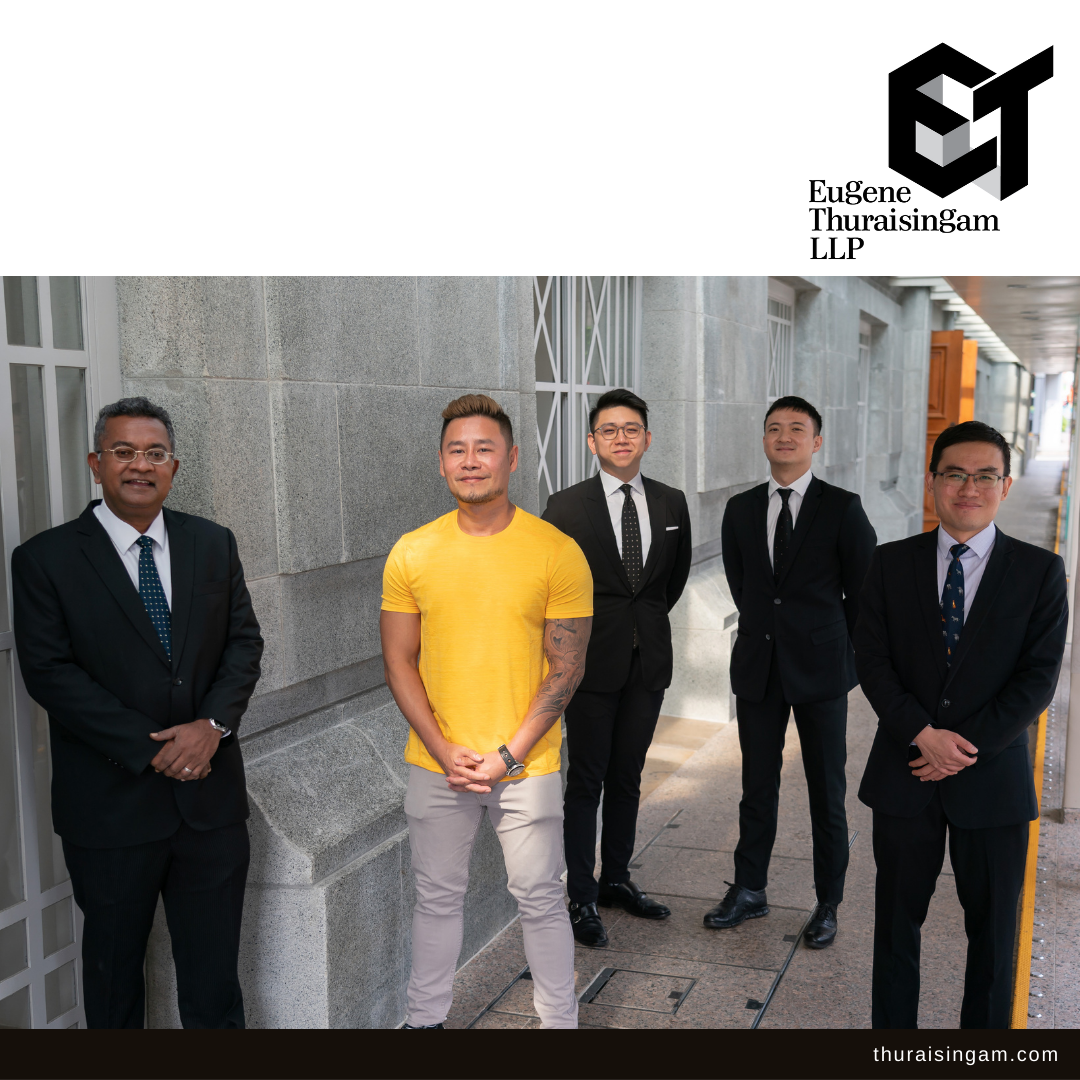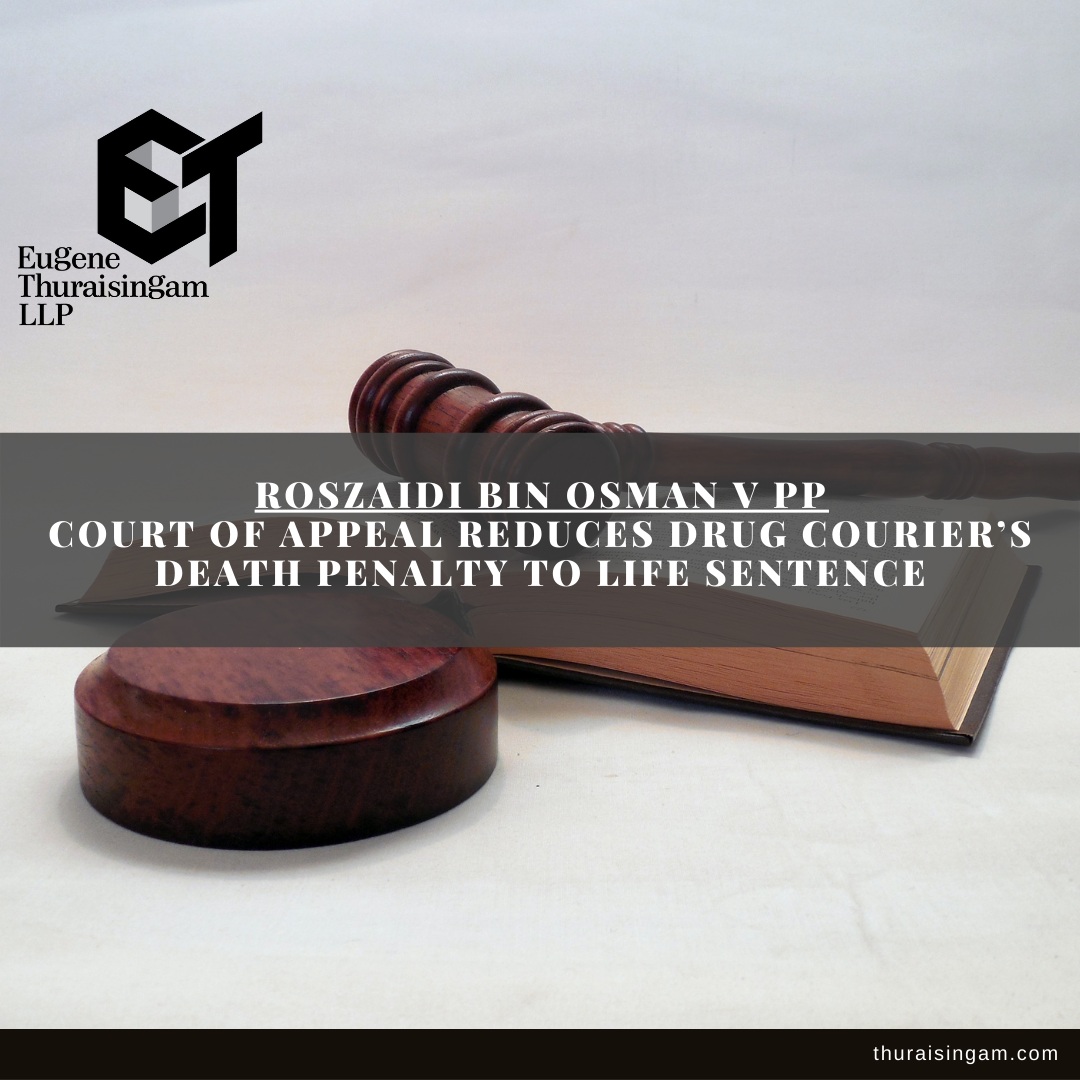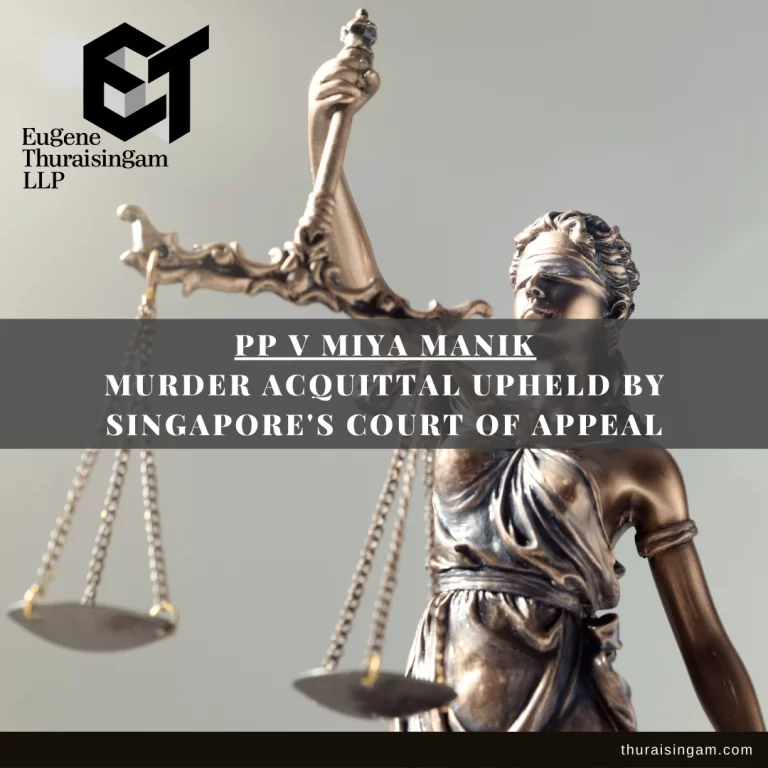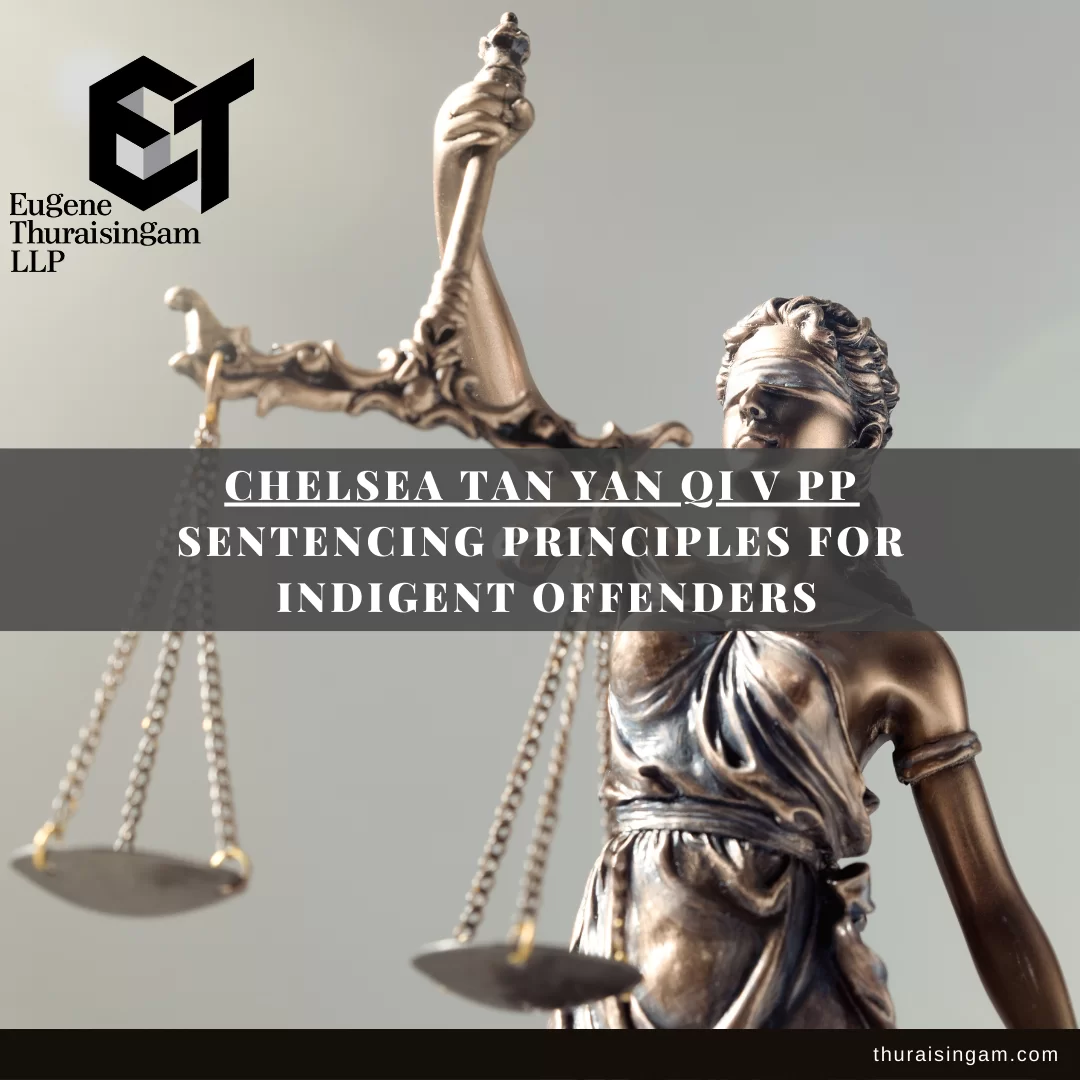Section 377A appeals dismissed by the Court of Appeal
Tan Seng Kee v Attorney-General & Ors [2022] SGCA 16
1. Introduction
These three appeals brought by Mr Johnson Ong Ming (“Mr Ong”), a disc-jockey and producer, Dr Roy Tan Seng Kee, a retired general practitioner, and Mr Bryan Choong, a former executive of LGBT non-profit organisation Oogachaga.
Eugene Thuraisingam, Suang Wijaya, Johannes Hadi, and Joel Wong were part of the legal team for Mr Ong.
2. Background of the case
On 18 November 2019, the legal team for Mr Ong made their arguments in court for Section 377A of the Penal Code to be declared unconstitutional. Mr Ong applied to review the constitutionality of section 377A of the Penal Code and sought a declaration that section 377A was inconsistent with Articles 9 (right to life and liberty) and/or 12 (right to equal protection of the law) of the Constitution. The hearings concluded on 20 November 2019.
On 25 January 2021, Chief Justice and all four Justices of the Court of Appeal heard arguments on the constitutionality of a law that criminalises consensual sexual conduct between adult men in private in the Court of Appeal.
3. Outcome of the hearings heard in the Court of Appeal
The appeals were dismissed. Nevertheless, today’s result may be seen as a small step in the right direction. The Court of Appeal held that section 377A is, at present, legally unenforceable because of statements made in Parliament by the Prime Minister in 2007, and a 2018 press release by the Attorney-General.
At paragraph 152 of the judgment:-
… Our holding is not legally insignificant. Instead, it gives legal effect to AG Wong’s representations without importing the uncertainties that would otherwise continue to plague homosexual men (see [97]–[100] and [103]–[108] above). Such uncertainties are fundamentally antithetical to the rule of law, as we earlier noted (see [109] above). It will also be recalled that a central tenet of the Government’s position was the desire to ensure that homosexual men could live peacefully, free from harassment, in our society. As we alluded to at [114(d)] above, the legal uncertainties that homosexual men would continue to face unless s 377A is held to be unenforceable in its entirety (subject to the qualifications set out at [149]–[150] above) might fairly be regarded as giving rise to a sense of harassment, and must therefore be minimised if the political package is to be given full legal effect.
We remain hopeful for full decriminalisation of homosexual sex in Singapore in the future.

